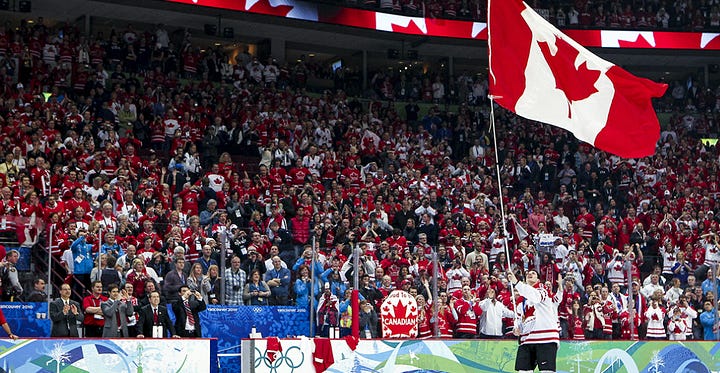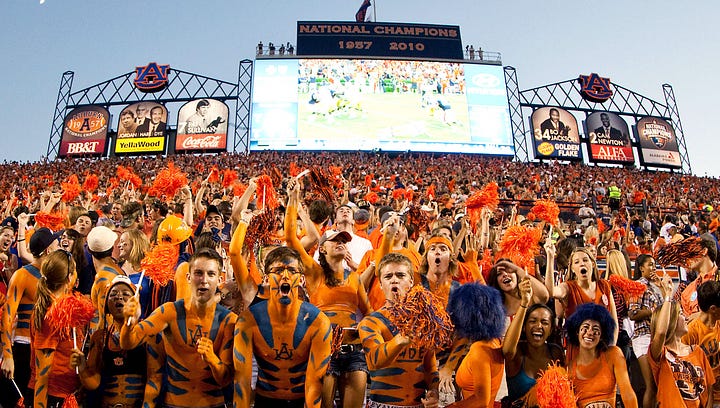Sports have been integral to human culture for centuries, bringing people together to celebrate athleticism, community, teamwork, and the thrill of victory. However, how fans interact with sports has drastically changed over the past two decades. The rise of fantasy sports has created a new way for fans to engage with their favourite players and compete against their friends. Still, it has also shifted focus away from the importance of team success towards individual statistics.
Fantasy sports, where fans can draft their teams of real-life players and earn points based on their statistical performance, has become a massive billion-dollar industry. Millions of people participate in fantasy sports leagues every year, and it's not hard to see why. Fantasy sports are a fun and engaging way to follow sports, allowing fans to feel more invested in the games and providing a new level of excitement and competition.
However, this shift toward fantasy sports has come at a cost. Fans are now more interested in their fantasy players' statistics than their favourite teams' success. This has created a situation where some fans are more invested in their imaginary fantasy teams than their favourite real sports teams, leading to a detachment from the real-life experience of sports.
As a lifelong sports fan, seeing this shift in fan behaviour has been disheartening. Cheering for individual players rather than the team is like focusing on the trees in a forest rather than the magnificent forest itself. The true beauty of team sports is in the collective effort of all players and staff working together, each contributing their unique skills and abilities towards the team's success. Cheering for individuals may lead to brief moments of excitement, but it overlooks the larger picture of what makes team sports captivating. When we root for the team, we acknowledge the value of each player's contribution to the overall success and appreciate the collaborative effort required to achieve victory. By cheering for the team, we become a part of the collective energy that drives the team toward its goals, and we share in the joy of the team's triumphs.
Sports media outlets have focused on individual statistics that benefit fantasy sports outcomes rather than stats that help teams win. They have created a culture prioritizing personal achievements over team success, leading to a disconnect between fans and the true essence of team sports.
It's easy to see why this has happened. Fantasy sports is a massive business; companies want to push individual statistics for their benefit. Fantasy Football alone is an 18 Billion dollar industry. Sports media outlets are businesses, and if force-feeding fantasy-driven statistics increases profits, they won't stop. Companies like ESPN pay billions for their television deals with professional sports leagues. If the hunger for fantasy sports drives ratings up, they will continue focusing on individual statistics. A study from the University of Michigan showed a statistically significant correlation between games with NFL players starting in greater than 90 percent of fantasy leagues and the television rating. This study showed a direct correlation that more fantasy players lead to increased ratings. In addition, these sports media companies, like ESPN, are in charge of the most prominent fantasy apps. Not only are they increasing their viewership, but they are also promoting their fantasy apps, increasing their profits even more.
The solution to this problem is clear. Sports media for the four major North American Leagues (NBA, NHL, MLB, NFL) must shift their focus away from individual statistics used in fantasy sports and move towards team statistics. This would require a concerted effort by all sports media outlets to prioritize team-oriented stats and shift away from the current focus on individual statistics.
Soccer is known to have the most passionate and loyal fans in the world. While soccer also has fantasy leagues, only 12% of fantasy users play fantasy soccer compared to 54% NFL, 25% MLB, 22% NBA, and 13% NHL. Their sports media's emphasis on individual statistics is less prominent. Instead, the sport relies on a complex player rating system that considers a player's contributions to the team's success. This rating system better indicates team success and has helped reinforce the importance of team-oriented play. The joy soccer fans get from their favourite teams winning could never be matched by winning your weekly fantasy matchup.
Furthermore, when we look at international or university sports, sports media is never concerned with individual statistics; it is all about the team. The media focuses on statistics crucial to the teams’ success. These fans are invested solely in the success of their favourite team, ultimately leading them to share the teams’ joy of victory or their agony of defeat. Their passionate fan bases display the sense of community that makes sports unique.


So how can we reinforce the importance of team success? As fans, we can start by actively seeking out and promoting stories of team-oriented play and highlighting the importance of team success over individual statistics. Additionally, we can support media outlets prioritizing team-oriented statistics over personal stats that only benefit fantasy sports outcomes. By supporting these outlets, we can send a message to the industry that we value team success and community involvement over individual statistics.
Sports media outlets must step back and consider their role in shaping fan behaviour. It's important to note that fantasy sports can still exist alongside a focus on team success. However, it should not be the driving force behind fan behaviour. By highlighting how a player's contributions have helped their team win, sports media can provide a more nuanced and team-oriented perspective that would encourage fans to cheer for teams rather than just individual players. By shifting the focus towards team success, sports media can help restore the sense of community and passion that sports can bring.





Very interesting article here. This is certainly an issue for the NFL.